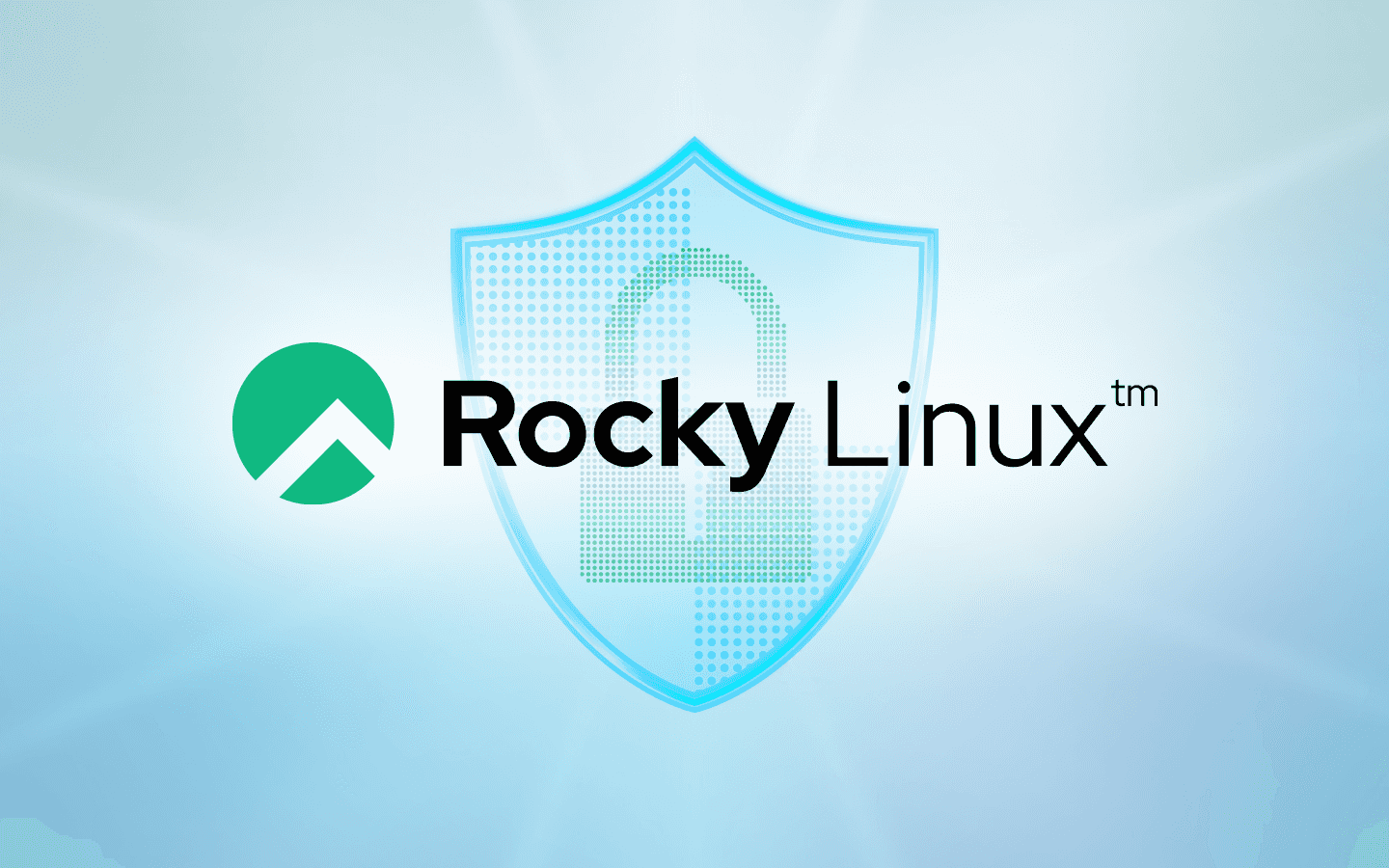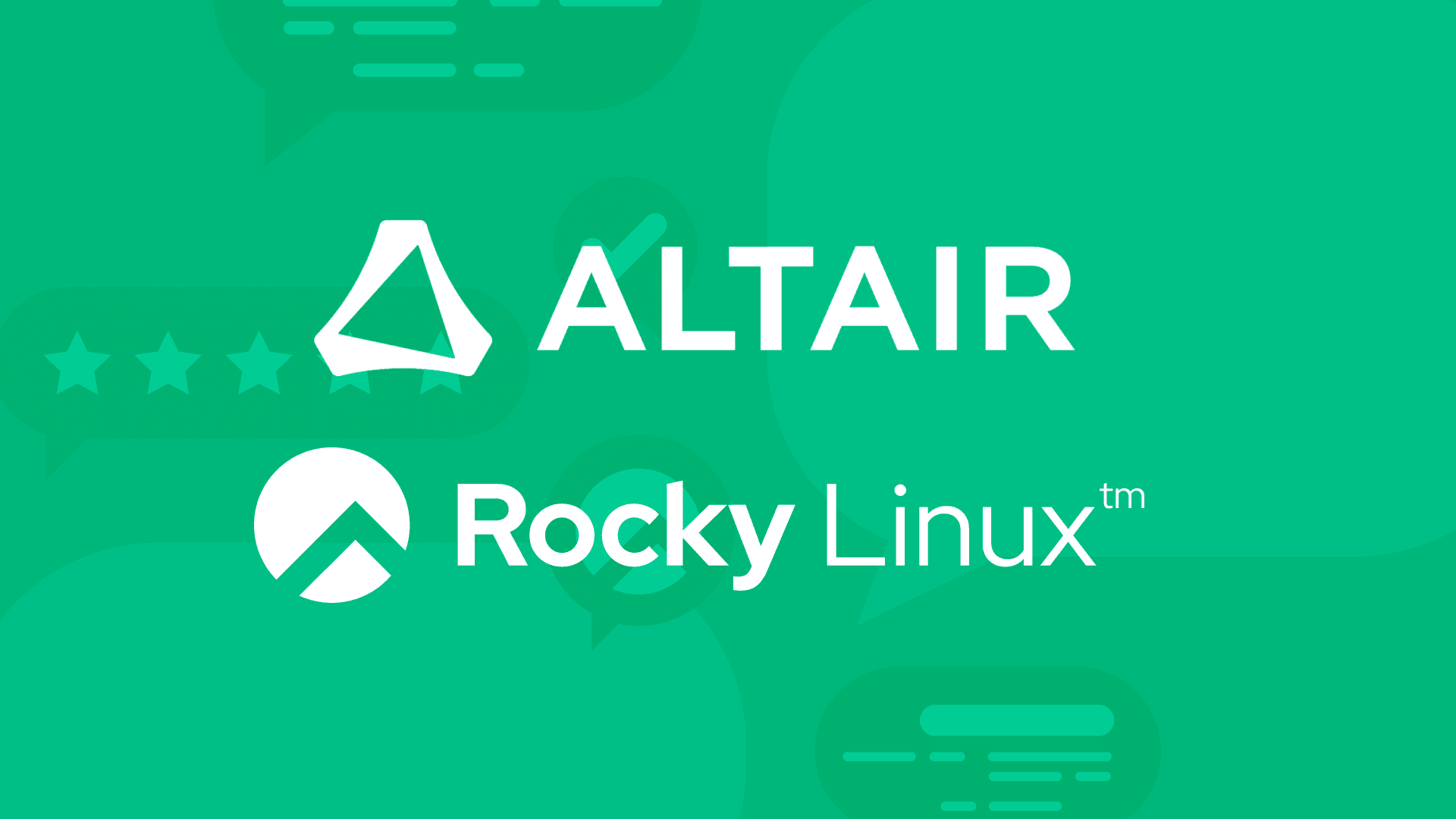6 min read
Rocky Linux Security and CVE Tools

We get many questions, both at CIQ and in the community at large, about Rocky Linux security practices, especially when it comes to particular vulnerabilities (CVEs) on a particular installed system or set of systems. This blog post will serve as a guide, with many links and resources to help answer those questions.
RHEL / Rocky Linux Release Scheduling
The Rocky Linux goal is to compile and match RHEL, version-for-version, for every package and release in the distro (3000+ packages). Therefore, the Rocky release schedule is set identical to the one in RHEL. Rocky releases are identified by a major version number and a minor version number. For example, in “8.7,” the major version is 8, and minor is 7.
Major versions are supported with updates for 10 years, while minor versions are supported for 6 months. Every 6 months, a new minor version is released. For example, Rocky 8.7 was released in November 2022, so Rocky 8.8 will be released in May of 2023. Rocky 8.9 will be released in November of 2023, etc. A new major version is released every 3 years. Rocky 9 was released in 2022 (and will receive updates until 2032). Rocky 10 will be released in 2025, and will receive updates until 2035.
RHEL/Rocky generally receives at least a few package updates every week during the course of a minor version. These are almost always very small patches to fix bugs, especially security issues. New features or newer versions of software packages are released with a new minor version. For example, Rocky 9.0 had PHP 8.0.13, with minor security patches during the 9.0 lifecycle (8.0.13-1, 8.0.13-2, etc.). Rocky 9.1 introduced PHP 8.0.27, which is a more significant upgrade with newer features. Future minor releases may bump PHP to 8.1 or 8.2.
Here are some important factoids about the way major/minor releases work:
-
Once the public Rocky Linux project releases a new minor version, the previous minor version is put into the “vault”, and will not receive updates anymore. When Rocky 8.8 is released, 8.7 is frozen in the vault and never updated again. An exception exists for CIQ’s “Long Term Support” offering, which is discussed below.
-
By default, users will automatically get each new minor release by simply running dnf update. No other action is required - minor release upgrades are seamless!
-
Upgrades between major versions (7 → 8, 8 → 9) are not supported. The recommended path is to set up configuration management and/or automated scripts, create a new machine, and redeploy software on the newer major version. (This may be subject to change as options are weighed and CentOS/RHEL 7 nears end of life in 2024).
Backporting and Updates! (Or, there’s more to life than raw version numbers!)
Practical Example
Here’s a kind of ticket comes that in often at CIQ support, as well as the Rocky public project:
This ticket (and the customer’s SECURITY_PRODUCT) presupposes some things that are false. It’s true that the current OpenSSL in Rocky 8 is version 1.1.1k, and that version is now a few years old as of this writing. What needs explaining is the concept of security backports.
To maintain software stability, RHEL (and therefore Rocky) take selected “small fixes” from newer versions of software and bring them back (called a “backport”) to the version in the distro. The modified version contains the fix, but the user is not forced into a major upgrade in order to get it. This concept is super important and is a big reason behind the appeal of RHEL/Rocky in the enterprise. Many packages are compiled against and depend on the OpenSSL library - if Rocky 8 was kept on the bleeding edge of OpenSSL versions (1.1.1t, or the even newer 3.0.2 series), other software would break! The OpenSSL project modifies their API when new versions are released. Rocky Linux packages that rely on the old version (like Apache, SSH, curl, and Python, to name a few) would also need to be rebuilt, or they would break. This backporting strategy allows “little fixes” to be released without breaking workflow or software compatibility, while keeping the software secure and bug-free.
Investigating This Issue
To investigate this example security issue (OpenSSL + CVE-2022-0778), we have several resources readily available:
Errata/Update Sites
- https://errata.rockylinux.org/: This is the Rocky Linux security and update errata site. I can search for “openssl” or “CVE-2022-0778” to try and find out if this security issue has been addressed. Filter functionality is also available to locate the proper update errata. I can browse until I find the proper openssl security update. Here it is on the errata site: https://errata.rockylinux.org/RLSA-2022:1065. This is the fix! Looking at “Affected Packages,” it appears this was fixed in openssl-1.1.1k-6. The -6 indicates minor patches/backports that have been done, modifying it from the original openssl-1.1.1k. I also see this issue was fixed in March 2022, shortly after this vulnerability was discovered. (note: The Rocky errata search feature isn’t currently working, but being fixed as of this writing. Filter options work as normal).
RPM/DNF on the Rocky System Itself
- On user’s system with RPM: rpm -q openssl --changelog | less. This command will get me the changelog of the currently installed openssl on my Rocky system. I can search through this changelog text; CVE references are almost always included with their corresponding version listing.
If I want to check the changelog of a package in the repository but not installed, I can also do that: dnf repoquery -q --changelog openssl | less. This might be slightly different than my installed version, if a newer version is available in the Rocky repos.
- DNF Auto-update to fix a particular CVE: dnf update --cve CVE-2022-0778. If my installed openssl is vulnerable, this command will update to the fixed one. If it’s not vulnerable, the command does nothing. I can also check on an update before I install it with dnf updateinfo info --cve CVE-2022-0778 .
Going one step further, I can browse through updateinfo for ALL potential updates simply with: dnf updateinfo (summary), or details: dnf updateinfo info | less . Or I can filter so I just see packages with security implications: dnf updateinfo info --security | less. CVEs are easily searchable within this text.
Rocky Linux Source Code and Build Systems:
- https://koji.rockylinux.org: This is the build system for Rocky 8. If I search “openssl” in the top right (Packages search), I see that it shows openssl-1.1.1k-6 was built on 2022-03-28. Clicking on that version, I can check the RPM changelog at the very bottom, and sure enough, the top entry has our security issue in it:
I’m also able to view the compilation logs and download the RPM artifacts for this (or any other) package version. Here is the openssl-1.1.1k-6 link: https://koji.rockylinux.org/koji/buildinfo?buildID=14039
-
https://peridot.build.resf.org/: This is the build system for Rocky 9. Its interface is wildly different from Koji, but you can still browse builds (and code imports) that the project has done. Logs and package versions can be investigated via the web interface.
-
https://git.rockylinux.org/: This is where all Rocky package source code is kept. OpenSSL in particular is in https://git.rockylinux.org/staging/rpms/openssl.
In the “r8” branch (for Rocky 8), we can click “Commits”, and find a list of versions imported. Clicking on our desired fixed version commit, (openssl-1.1.1k-6, remember?) we can see the exact backported code that fixed this CVE-2022-0778 issue: https://git.rockylinux.org/staging/rpms/openssl/-/commit/cb48d82142792160a7fe9f1fdfdd8a0b72e0477f. This is useful for traceability: this (public) link shows exactly what code was used to fix the problem. And users can verify the fixed update made it onto their system.
-
https://incoming.releng.rockylinux.org/: This Rocky “Incoming!” page tracks all RHEL package updates for the previous 45 days. It indicates whether the RHEL update has been imported and published by Rocky Linux yet. Useful to get a feeling of what packages have seen updates recently, and their versions.
This information is all public and freely available! We strongly encourage their use when researching Rocky Linux issues, security or otherwise. These links and the relevant changelogs should make it clear exactly what is in Rocky Linux, where it comes from, and how it’s been modified from the original upstream source.
CIQ and Long Term Support (LTS)
CIQ offers an additional paid service for customers: Rocky Linux Long Term Support (“LTS”). This is designed for organizations who want to remain on a previous minor release of Rocky Linux (like 8.6), which is no longer supported by the public project. CIQ staff will continue backporting security and bug fixes into the supported minor releases for a period of time, after the public project has retired said minor release.
Subscribed customers who value stability can remain on their desired release longer, while still enjoying minor security and bugfix updates to their packages. As of this writing, CIQ is supporting non-zero, even-numbered point releases (8.6, 8.8, 9.2, 9.4, etc.) with its LTS offerings. LTS support lasts for 18 months after the release is retired from the public project. For example, Rocky 8.6 was retired in November 2022. CIQ’s LTS-8.6 support will last 18 months from that, or May 2024.
Learn more about Rocky Linux, which is widely adopted in enterprise and high-performance computing (HPC) environments and by leading hyperscalers. Reach out to us if you’d like to learn more about our Rocky Linux support offerings.
Built for Scale. Chosen by the World’s Best.
1.4M+
Rocky Linux instances
Being used world wide
90%
Of fortune 100 companies
Use CIQ supported technologies
250k
Avg. monthly downloads
Rocky Linux



